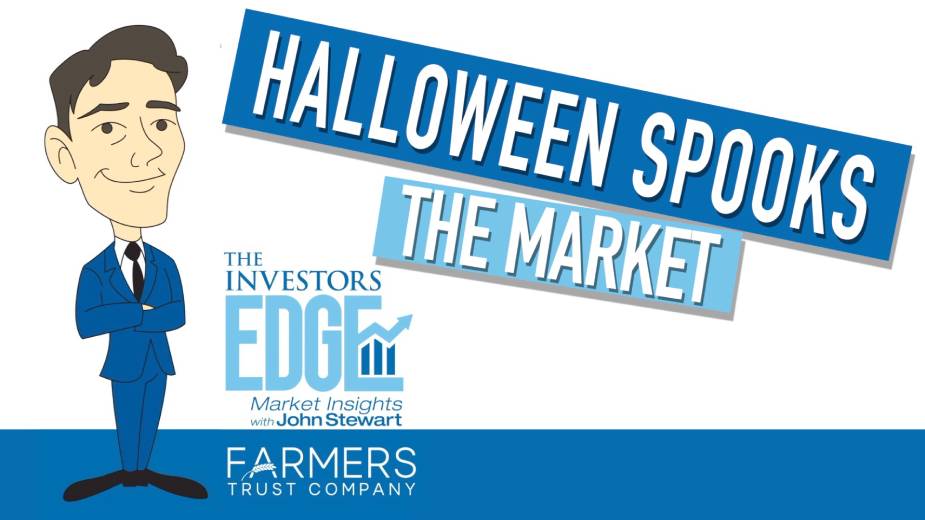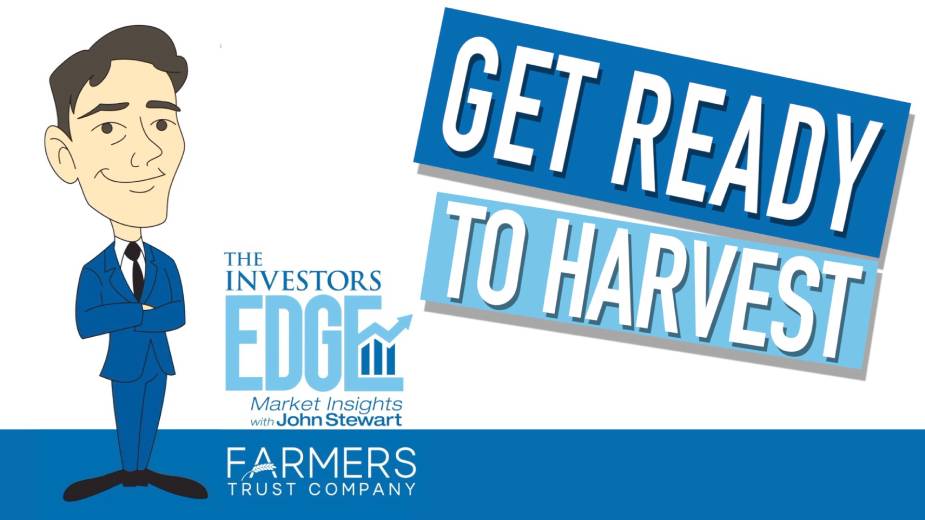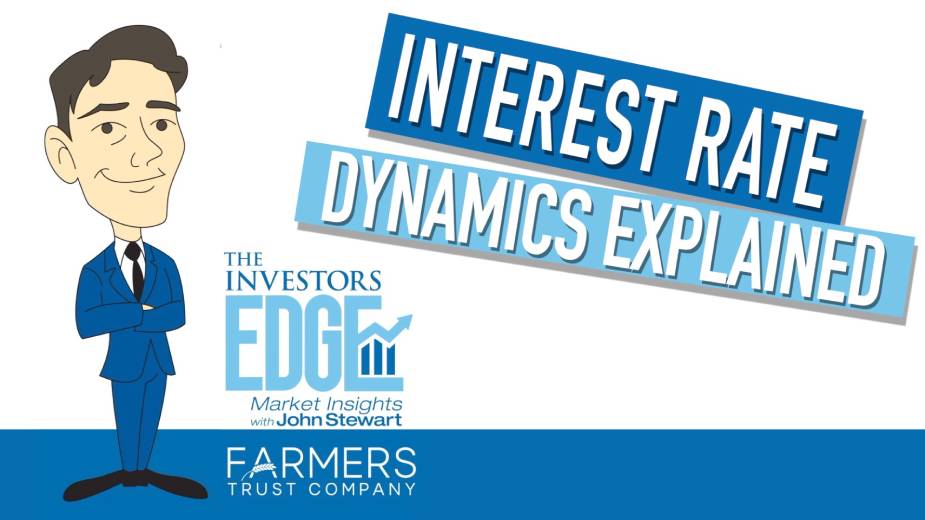Stick to What You Know! | The Investors Edge
By John Stewart, chief investment officer at Farmers Trust Co.
Week in Review: Bonds Bounce Back
CANFIELD, Ohio — As I’ve talked about on this program recently before, what has made the first several months of 2022 such a challenging stretch for investors is that both stocks and bonds have been trending lower together.
Yes, the stock market is down roughly 15% this year, but at one point the aggregate bond index was down more than 10%. Not only is a 10% decline in the aggregate bond market highly unusual for what is typically a stable and relatively boring asset class, but it is especially unusual when the stock market is also under pressure.
I’ve been trying to reassure nervous investors that this dynamic of both stocks and bonds declining together was unlikely to persist for an extended period of time, and that the counter-balancing features of these asset classes would like reassert themselves.
This past week, bonds finally did their job. In the past 7 trading days, the aggregate bond market rose nearly 1.5%, at least helping to offset the roughly 2.5% decline in the S&P 500 index for investors with balanced portfolios.
The 10-year Treasury interest rate has now fallen to around 2.75% after briefly reaching a high of 3.2% earlier this month. Where it goes next is anyone’s guess, but stocks and bonds are likely to provide a little bit more yin and yang going forward than they did in the first 4 and a half months of this year.
Featured Insight: Stick to What You Know
One of the timeless principles of investing is that you should stick to what you know in terms of deciding to purchase stock in individual companies.
Legendary Fidelity fund manager Peter Lynch advised investors to buy what they know in his book – One Up on Wall Street.
Companies with relatively simple business models that sell products and services consumers are familiar with and buy on a regular basis tend to stand the test of time and are less risky than “black box” businesses that could be more subject to financial manipulation.
Procter & Gamble sells Crest toothpaste and Tide laundry detergent. How PayPal makes its money is a little less clear. While I’m not making recommendations to buy or sell those particular companies, the former is up 10% during the past 12 months while the latter has lost 70% of its value.
Of course, it’s not enough just to buy what you know, you should also try to buy at an attractive price relative to a company’s fundamental value – but that’s a whole other topic for another day.
Looking Ahead: Eyes on Economic Data
Next week will be a shortened week with the Memorial Day holiday on Monday, but there are a couple of economic data points that I will be watching closely.
On Tuesday, we’ll get the consumer confidence index, which is important due to the potential implications of consumers’ confidence levels on spending. If financial market weakness dramatically reduces confidence levels, a drop in consumer spending is likely to follow.
On Thursday we’ll get initial jobless claims, which are at extremely low levels, but have increased slightly in recent weeks. If a trend higher in claims continues, that could be a sign the labor market may not be quite as rock solid as economists and investors currently believe.
On the other hand, if we get positive data on either front, the stock market may be due for a near-term bounce off oversold levels.
Copyright 2024 The Business Journal, Youngstown, Ohio.


